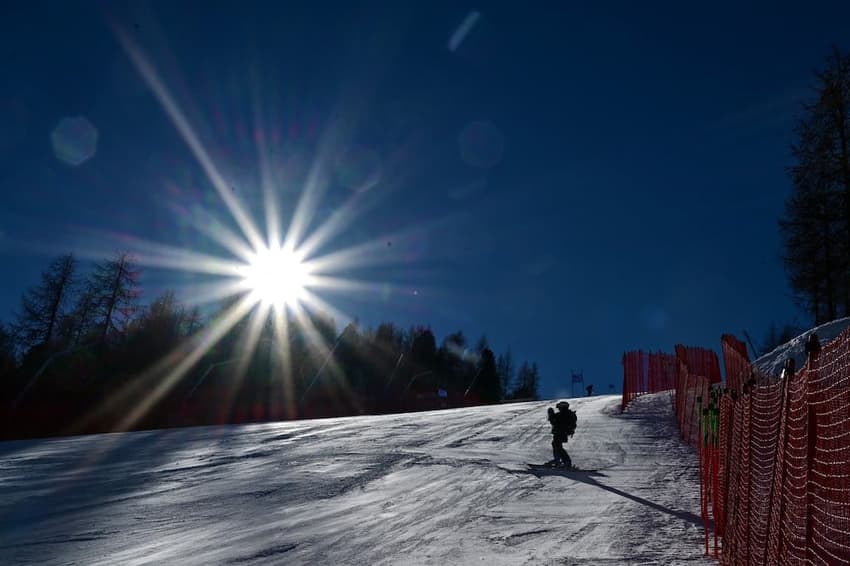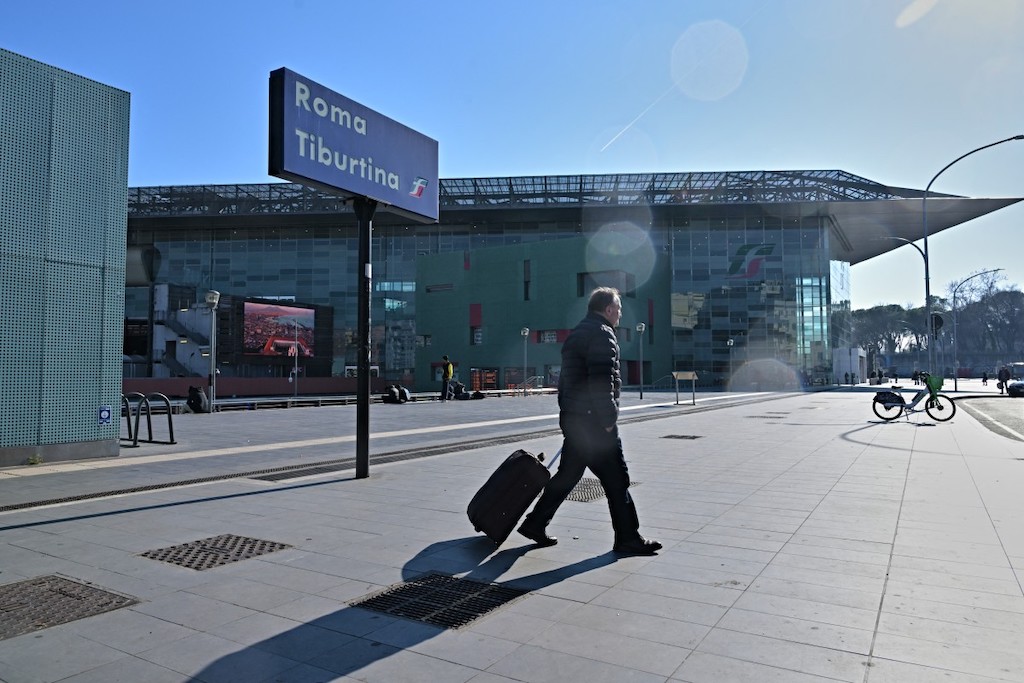The winter that wasn't: Italy's climate experts raise alarm over high temperatures

Italy has experienced one of its warmest winters yet, with several Italian regions seeing "significantly below average" rainfall and authorities sounding the alarm over drought.
As February draws to a close, Italy's weather remains disconcertingly mild, leading to what some climate experts are referring to as Febbaprile - that is, April weather conditions in February.
Temperatures are around 8-10C above the seasonal average, meteorologist Mattia Gussoni of the weather website Ilmeteo warned over the weekend, meaning Italy has had "a winter without a winter".
"The winter season so far has not had any cold phases... if we exclude an early December with below average temperatures," Gussoni told news agency Ansa.
"In terms of the 'meteorological' winter, this season will therefore end in 12 days and we will remember it with the '+' sign."
READ ALSO: Climate crisis: '90 percent' of Europe's ski resorts face critical snow shortages
Northern cities like Milan, Venice, Turin, Bologna and Bolzano, where maximum temperatures typically average 8-9C in February, have seen highs of 17-19C in recent days.
Drought alerts have already been issued for regions including Sicily, Sardinia, and Calabria, which are suffering from a severe lack of rainfall.
In the north of the country, Piedmont is also facing drought: parts of the River Po are reaching peaks of just 50 percent of their usual flow.

A man leaves a train station in Rome on January 30, 2024. Italy has experienced well above average temperatures this winter. Photo by Andreas SOLARO / AFP.
A lack of rainfall and some of the highest January temperatures the region has seen since 1948 are contributing to a serious smog problem, with Turin exceeding the limit of 50 micrograms of fine particles per cubic metre for 15 days out of 30 between January and February.
Unusually mild and dry weather conditions have also been blamed for worsening pollution in the neighbouring Lombardy region in recent days, where anti-smog measures have been introduced in nine provinces after PM10 air pollution levels exceeded limits for a fourth day in a row.
On February 9th, Sicily's governor Renato Schifani declared a state of natural disaster due to severe drought in the region, and Sardinia has also started to limit water use.
Sicily experienced its driest six months in over a century in the second half of 2023, and is currently missing around 54 and a half million cubic meters compared to normal reserves.
READ ALSO: No more 'dolce vita': How extreme weather could change Italian tourism forever
The region is the only part of Italy currently in ANBI's (the Association of Land Management and Protection and Irrigation Water Consortia) highest risk "red zone", but is far from being the only area affected.
"In some areas of Sicily and Sardinia, but also Calabria, Puglia and Basilicata, rainfall has been significantly below average for at least six months," says Ramona Magno, head of the National Research Council's Drought Observatory.
The above average temperatures have "particularly affected and aggravated the state of surface water reserves, which suffer, in addition to the rainfall deficit, from high evapotranspiration," she added.
At least in the short term, however, there is some good news, according to meteorologists: a polar trough is expected to move in from the Atlantic from Thursday and Friday, bringing rain and snow to drought-hit areas and causing a temperature drop of up to 10C in some parts of the country.
Comments
See Also
As February draws to a close, Italy's weather remains disconcertingly mild, leading to what some climate experts are referring to as Febbaprile - that is, April weather conditions in February.
Temperatures are around 8-10C above the seasonal average, meteorologist Mattia Gussoni of the weather website Ilmeteo warned over the weekend, meaning Italy has had "a winter without a winter".
"The winter season so far has not had any cold phases... if we exclude an early December with below average temperatures," Gussoni told news agency Ansa.
"In terms of the 'meteorological' winter, this season will therefore end in 12 days and we will remember it with the '+' sign."
READ ALSO: Climate crisis: '90 percent' of Europe's ski resorts face critical snow shortages
Northern cities like Milan, Venice, Turin, Bologna and Bolzano, where maximum temperatures typically average 8-9C in February, have seen highs of 17-19C in recent days.
Drought alerts have already been issued for regions including Sicily, Sardinia, and Calabria, which are suffering from a severe lack of rainfall.
In the north of the country, Piedmont is also facing drought: parts of the River Po are reaching peaks of just 50 percent of their usual flow.

A lack of rainfall and some of the highest January temperatures the region has seen since 1948 are contributing to a serious smog problem, with Turin exceeding the limit of 50 micrograms of fine particles per cubic metre for 15 days out of 30 between January and February.
Unusually mild and dry weather conditions have also been blamed for worsening pollution in the neighbouring Lombardy region in recent days, where anti-smog measures have been introduced in nine provinces after PM10 air pollution levels exceeded limits for a fourth day in a row.
On February 9th, Sicily's governor Renato Schifani declared a state of natural disaster due to severe drought in the region, and Sardinia has also started to limit water use.
Sicily experienced its driest six months in over a century in the second half of 2023, and is currently missing around 54 and a half million cubic meters compared to normal reserves.
READ ALSO: No more 'dolce vita': How extreme weather could change Italian tourism forever
The region is the only part of Italy currently in ANBI's (the Association of Land Management and Protection and Irrigation Water Consortia) highest risk "red zone", but is far from being the only area affected.
"In some areas of Sicily and Sardinia, but also Calabria, Puglia and Basilicata, rainfall has been significantly below average for at least six months," says Ramona Magno, head of the National Research Council's Drought Observatory.
The above average temperatures have "particularly affected and aggravated the state of surface water reserves, which suffer, in addition to the rainfall deficit, from high evapotranspiration," she added.
At least in the short term, however, there is some good news, according to meteorologists: a polar trough is expected to move in from the Atlantic from Thursday and Friday, bringing rain and snow to drought-hit areas and causing a temperature drop of up to 10C in some parts of the country.
Join the conversation in our comments section below. Share your own views and experience and if you have a question or suggestion for our journalists then email us at [email protected].
Please keep comments civil, constructive and on topic – and make sure to read our terms of use before getting involved.
Please log in here to leave a comment.